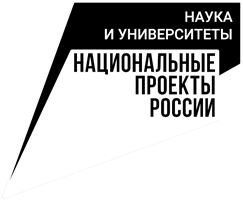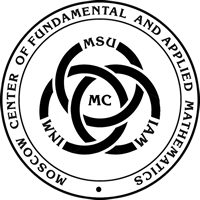PROGRAM
11:00 (GMT+3)
| Anton Trushechkin | Steklov Mathematical Institute of the RAS |
|
Bio: Results of Anton Trushechkin in quantum cryptography were nominated as one of most important mathematical achievements of the Russian Academy of Sciences in 2020. |
|
Mathematical methods of quantum key distribution.
Quantum key distribution and, more generally, quantum cryptography is a modern branch of science where methods of secure communication based on principles of quantum mechanics are studied. The rigorous proof of the security of quantum key distribution gave rise to a complex and beautiful mathematical theory, which is based on methods of quantum information theory, namely, quantum entropic measures and entropic uncertainty relations. In particular, to estimate secret key rate, one needs to minimize the quantum relative entropy (a convex function) subject to linear constraints. The problem is, in general, infinite-dimensional, but symmetry properties of the problem reduces the dimensionality and allows one to solve this problem analytically. However, currently, an important task is to prove the security of quantum key distribution with imperfect (i.e., practical) devices. Imperfections introduce asymmetries and thus make the problem more complicated. In the talk, estimations for the secret key rate in the case of detection-efficiency mismatch will be presented. Using entropic uncertainty relations, an infinite-dimensional problem is reduced to a one-dimensional one.
12:00 (GMT+3)
| Prof. Feihu Xu | University of Science and Technology of China |
|
Bio: Feihu Xu has been a Professor at USTC since Oct. 2017. Before joining USTC, he was a Postdoctoral Associate at MIT in 2015-2017. He received an M.A.Sc and Ph.D from University of Toronto in 2011 and 2015. He works on quantum information science and has co-authored more than 70 journal papers. As the first/corresponding author, he has published more than 40 journal papers in Rev. Mod. Phys. (1), Nat. Photon. (4), Nat. Phys. (1), etc. He is the recipient of Early Career Award by NJP in 2020, 35 Innovators Under 35 of China (by MIT Technology Review) in 2019, Outstanding Dissertation Award (by OCPA) in 2015, and Best Paper Award of QCrypt in 2014. |
|
A quantum leap in security.
Quantum cryptography or quantum key distribution (QKD) offers information-theoretic security based on the laws of physics. This is the technology at the basis of the quantum satellite “Mozi”, put in orbit by the Chinese Academy of Sciences in 2016. In practice, however, the imperfections of realistic devices might introduce deviations from the idealized models used in the security proofs of QKD. Can quantum code breakers successfully hack real systems by exploiting the side channels? Can quantum code makers design innovative countermeasures to foil quantum code breakers? In this talk, I will talk about the theoretical and experimental progress in the practical security aspects of quantum code making and quantum code breaking. After numerous attempts over the past decades, researchers now thoroughly understand and are able to manage the practical imperfections. Recent advances, such as the decoy-state, measurement-device-independent (MDI) and twin-field (TF) protocols, have closed critical side channels in the physical implementations in a rigorous and practical manner. Further readings in [Xu et al., Rev. Mod. Phys. 92, 025002 (2020)].
The meeting will be held in the form of a webinar on the Zoom platform.
Pre-registration for the event is not required.
To join Zoom meeting(You can join in the meeting without a phone number):
https://zoom.com.cn/j/63363611209?pwd=VHdkbHF5KzNBVG1nTklxeWpZSExUZz09
Meeting ID : 633 6361 1209
Passcode:127853
Instructions for installing and using the Zoom platform are available here:
https://support.zoom.us/hc/ru/articles/201362033-Начало-работы-на-ПК-и-Mac

